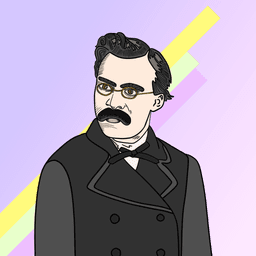German Separable Verbs
Learn how German separable verbs (trennbare Verben) work, including their conjugation, tense usage, and placement in sentences. Master verb separation rules with clear explanations and examples.

Separable verbs (trennbare Verben) are verbs in German that consist of a prefix and a base verb. In certain sentence structures, the prefix separates from the base verb and moves to the end of the sentence.
Understanding separable verbs is essential for constructing correct German sentences, especially in the present tense, past tense, and imperative form.
Structure of Separable Verbs
Separable verbs typically consist of:
- A separable prefix (e.g., auf-, an-, mit-, zu-)
- A base verb (e.g., stehen, kommen, rufen)
Common Separable Prefixes
| Prefix | Meaning | Example |
|---|---|---|
| ab- | away/off | abfahren (to depart) |
| an- | on/to | ankommen (to arrive) |
| auf- | up/on | aufstehen (to stand up) |
| aus- | out | ausgehen (to go out) |
| ein- | in | einkaufen (to shop) |
| mit- | with | mitkommen (to come along) |
| nach- | after | nachdenken (to think about) |
| vor- | before | vorstellen (to introduce) |
| zu- | to/closed | zumachen (to close) |
Conjugation in the Present Tense
In the present tense, the prefix separates and moves to the end of the sentence.
Example with "aufstehen" (to get up):
| Person | Conjugation |
|---|---|
| Ich | stehe auf. |
| Du | stehst auf. |
| Er/sie/es | steht auf. |
| Wir | stehen auf. |
| Ihr | steht auf. |
| Sie/sie | stehen auf. |
Examples:
- Ich stehe um 7 Uhr auf. (I get up at 7 o’clock.)
- Er kommt später an. (He arrives later.)
Separable Verbs in Different Tenses
1. Past Tenses
In the Perfekt (present perfect), the prefix remains attached to the past participle, and ge- is inserted between the prefix and verb.
Structure:
Prefix + ge- + base verb
Examples:
- Ich bin früh aufgestanden. (I got up early.)
- Er hat gestern angerufen. (He called yesterday.)
2. Future Tense (Futur I)
In Futur I, the separable verb remains together in the infinitive form at the end.
Structure:
werden + infinitive
Examples:
- Ich werde um 8 Uhr aufstehen. (I will get up at 8 o’clock.)
- Er wird später ankommen. (He will arrive later.)
3. Imperative (Commands)
In imperative sentences, the prefix remains separated.
Examples:
- Steh auf! (Get up!)
- Mach die Tür zu! (Close the door!)
Separable vs. Inseparable Verbs
Some verbs look like separable verbs but are inseparable (untrennbare Verben). These verbs have non-separable prefixes (e.g., be-, ent-, ver-, zer-).
Comparison: Separable vs. Inseparable Verbs
| Separable Verb | Inseparable Verb |
|---|---|
| aufstehen (to get up) | verstehen (to understand) |
| ankommen (to arrive) | bekommen (to receive) |
| mitbringen (to bring along) | zerstören (to destroy) |
| einkaufen (to shop) | entscheiden (to decide) |
A key difference:
- Separable verbs: The prefix separates in main clauses (Ich stehe auf.).
- Inseparable verbs: The prefix never separates (Ich verstehe dich.).
Separable Verbs in Subordinate Clauses
In subordinate clauses (Nebensätze), the verb moves to the end, and the prefix reattaches to the verb.
Example:
- Ich weiß, dass er morgen ankommt.
(I know that he is arriving tomorrow.)
Summary of Key Rules
- In the present tense, the prefix separates and moves to the end.
- In the perfect tense, the prefix stays attached to the past participle (ge- is inserted).
- In future tense, the full verb remains in the infinitive form.
- In subordinate clauses, the prefix stays attached, and the verb moves to the end.
- Separable verbs differ from inseparable verbs, which never separate.
Mastering separable verbs will significantly improve your ability to construct clear and natural German sentences.




